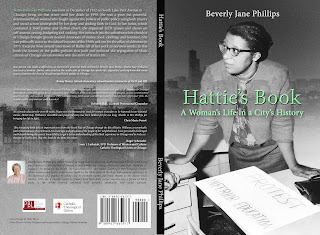Second Reading by Jonathan Yardley
Unfortunately my copy has languished on my nightstand lo these past years because I just could not really get into it. I’m wondering why this is, when I’ve been ravenous for other books about books. I feel like there are several reasons. One, every review feels like a dry treatise on the book being reviewed; I’m a bit worried that my own blog reviews will feel this way as well! It doesn’t matter whether the book is an extremely serious one or very lighthearted (and they do run the gamut from those with such topics such as the war or sexual politics to downright humor such as Thurber and Will Rogers). I understand that Yardley probably felt he was writing for a well-educated audience, and I don’t think that reviews should be advertisements for why someone should read a book, but neither should they be so dusty and dry that they kill any desire to read. It’s really telling that most of the things I marked (I usually just draw a line in the margin next to things I want to remember) are quotes from the books he reviews rather than his own thoughts.
Yardley is a Pulitzer Prize winner and I expected that meant that he was a really excellent writer, and maybe he is. Possibly these reviews were just too journalistic and the other books on books I appreciate are not so much in that vein. There were only six books (I am a librarian after all, though theology is my subject area) that I had never heard of or at least never heard of the author. I was expecting to be wanting to be made to read quite a number of those I hadn’t read but only three of the reviews gave me any desire to read the book reviewed. (Contrast this with Susan Hill’s book on books, Howards End is on the Landing: A Year of Reading from Home. That book prompted me to jot down over thirty book titles to read in the future!)
Yardley mentions a lot about his own life and likes and history and I find it very offputting (though I do tons of this myself!) if I don’t feel it adds anything to the purpose. I think most of the other books on books I have read do this too, so why was it so unappealing? I expect writers of such to talk about their own lives. After all, books are read in our lives, not outside them. If it wasn’t as part of our very lives that we read, books would have no meaning for us. In the end I skipped paragraphs of social commentary and swaths of Yardley‘s life history in order to finish the book.
I will say in his favor, in one review he did his best to aid the cause of British women writers:
In the two decades between 1912 and 1933, six English-women were born who went on to become exceptionally gifted and accomplished writers of sophisticated, surpassingly civilized novels. Many of their books have been published in this country, but only Penelope Fitzgerald, Anita Brookner and Penelope Lively are reasonably well known here, and the others--Elizabeth Taylor, Elizabeth Jane Howard and Isabel Colegate--have never found more than modest American readerships.
He goes on to describe what it is I like about British women, in my case, middlebrow, not upperbrow as I’d categorize these six, but the same things apply.
Though their styles and subjects vary widely, they have in common keen intelligence and wit, a deep interest in domestic life and matters of social class, an agreeably old-fashioned commitment to the art of storytelling and a preference for the miniature over the grandiose. Though women’s lives, opportunities, difficulties and rights are important to all of them, none is reflexively ideological or feminist.
Of the sixty reviews, only 14 are by women (I am not a fan of hardly any of them), and it almost feels as if they are there because it would have looked odd if there were not women writers included. He does include one quote FROM Elizabeth Bowen that I want to remember, so I’m jotting it down here. “These things are what we mean when we speak of civilization: they remind us how exceedingly seldom the unseemly or unforeseeable rears its head. In this sense, the destruction of buildings and furniture is more palpably dreadful to the spirit than the destruction of human life.” (from Death of the Heart) Early on I decided that my own purpose was to read it specifically to find books that might want to read during A Century of Books, otherwise I would’ve followed my stringent rule: if I am not enjoying the book, stop reading it!



Comments
Post a Comment